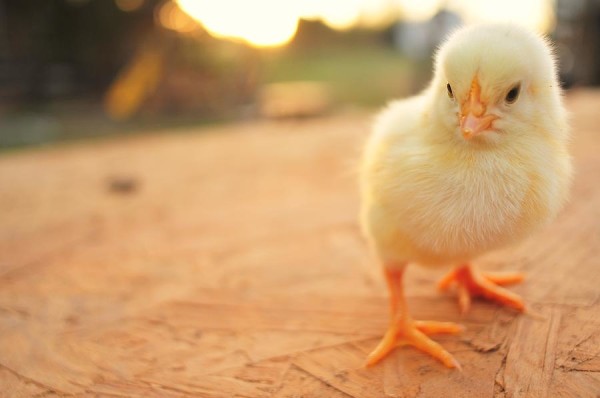Get Your Script Reviewed On Scriptshadow!: To submit your script for an Amateur Review, send in a PDF of your script, along with the title, genre, logline, and finally, something interesting about yourself and/or your script that you’d like us to post along with the script if reviewed. Use my submission address please: Carsonreeves3@gmail.com. Remember that your script will be posted. If you’re nervous about the effects of a bad review, feel free to use an alias name and/or title. It’s a good idea to resubmit every couple of weeks so your submission stays near the top.
Genre: Drama/Coming-of-Age
Premise (from writer): A tentative young woman gains confidence after the rescue of a baby chicken brings her under the tutelage of a Miyagi-style mentor who trains roosters for cock-fighting.
Why You Should Read (from writer): Cock-fighting is outlawed in the continental U.S. but still legal in Puerto Rico and the U.S. Virgin Islands. I’ve been living in St. Thomas for the past 20 years and wanted to utilize an unusual dynamic which might feasibly only exist there, in order to write a different sort of coming of age story. Hope it works! Thanks for checking it out.
Writer: Stephanie Jones
Details: 87 pages
It’s Friday, folks.
That, of course, means, in 8 hours, you’ll be sliding into your front door with an entire 48 hours of weekend splendidness in front of you and not a care in the world.
If I were you, I’d take the opportunity to catch a movie as we’ve got some good ones this weekend. “Inside Out,” from Pixar, has nabbed a 99% on Rotten Tomatoes. Festival favorite, “Dope,” about geeks in the hood, isn’t far behind at 89%. Infinitely Polar Bear and The Overnight are also above the 80th percentile and include kick-ass casts. Finally, you can check out a film from a longtime Scriptshadow reader whose script I reviewed forever ago, Burying the Ex! It’s in theaters AND on digital. So definitely rent that this weekend and support our Scriptshadow brethren!
I’m glad there are so many indie films debuting this weekend though because that’s where we’re headed with today’s review. On a day that’s usually reserved for horror fair, getting a coming-of-age script is a nice change-up.
“Chicken Lickin” follows 20 year-old Emily Shaw, a bit of a scatterbrain who’s living on St. Thomas Island, one of the most beautiful islands in the Caribbean. Emily’s got a good heart but hasn’t got the “life thing” figured out yet.
She’s in a toxic relationship with her jerk older boyfriend, Josh. She isn’t able to hold down a job to save her life. She sucks at caring for her grandmother (who’s staying at a run-down nursing home). And she’s just all around lost.
That is until she meets “Peck,” a tiny little chickadee that’s strayed off from its litter. Against her better judgment, Emily takes the baby rooster in, only to realize that she doesn’t know what she’s doing.
So she seeks the help of a local chicken farmer, Ernesto. It turns out Ernesto does more than farm chickens. He fights them. Ernesto has a sort of spiritual connection to his chickens that celebrates the differences between “them” and “us.” In his mind, you have to let the chicken be a chicken.
Emily starts to care for Ernesto’s chickens but can never quite see them the way he does. To her, these are living, breathing bodies in need of love and attention just like humans. That mindset seems to work for awhile. But when all of the walls in Emily’s life come crumbling down at once, it’s going to take more than a friendship with a chicken to right the ship and get her life back on track.
“Chicken Lickin” is a feeling in search of a story.
I admire that Stephanie tried something different. That’s always to be commended. But “different” comes with a caveat. It’s harder to make “different” work. And while I was reading “Chicken Lickin,” I kept waiting for a bigger story to emerge, something with some weight, something with some stakes.
The biggest problem is the lack of a story. There’s no real goal here, and while that’s not a death-knell for a movie, it deprives your screenplay of a proper engine, a way to make the plot move.
What is Emily trying to do here other than exist? Not much.
Since The Karate Kid is alluded to in the logline, let’s take a look at the engine in that film. The reason Daniel goes to Mr. Miyagi is to train so he can compete at the tournament, with the agreement from the bullies being that, once he competes, they won’t bother him anymore. He has a clear-cut goal.
When you have that goal, you have your climax built into the story (the tournament). You don’t have to go searching for it. And since you have your climax, you can work to BUILD the story up to that climax, giving the screenplay the feeling that the balloon is blowing up bigger and bigger and bigger.
Without a goal, Chicken Lickin doesn’t have a clear climax. And since we don’t know where we’re headed (where that climax is going to be), there’s no build in the meantime. It just seems like things are happening one after another without any sort of end-goal.
I think on some level, Stephanie realized this, and she makes one of the subplots her climax (A company is taking away a popular beach from the public). While I’ve seen this kind of thing done before – and successfully – making a subplot your climax is a bit like serving generic cola at a party. Everyone’s going to be wondering where the Coke is.
So where does Stephanie go from here? Well, I just don’t think this idea has been explored enough. If you asked me straight up what Chicken Lickin was about, I’m not sure I’d be able to tell you. Is it about a girl who adopts a chicken? Is it about a girl struggling to get her life together? Is it about a girl who befriends a struggling local cockfighter? I’m not sure.
One of the things about screenwriting is that you’ll never find your script right away. You never get it in that first draft. Stories evolve. And when you finish a draft and read it back, it will tell you where it wants to go. And often times, it won’t be in the direction you originally assumed.
I think Stephanie’s still searching for that story and I just don’t know what it is yet. The most attention-grabbing idea in the script is cockfighting, but to focus solely on that would bring a whole new set of challenges (the stigma of a movie about animal-killing) so I’m not sure you want to go there.
As crazy as this sounds, I’m not even sure you want Peck in this script. Because I’m not sure that Peck taught Emily anything. And it sort of distracts us from the coming-of-age angle, since we keep waiting for the chicken story to give us more.
Maybe you focus instead on a straight-forward coming-of-age story about an island girl, put the company-stealing-the-beach storyline front and center and let the “unique” factor be all the crazy people you only find on this island.
This might work well if Emily is forced to come and stay here on the island as opposed to being here willingly. That should create more internal conflict and you have more room to arc the character (she goes from hating this place to loving it).
I’m thinking out loud here but it’s clear this isn’t a movie yet. There isn’t a big enough idea at the center of it, there isn’t a big enough goal driving the story, and it just feels too aimless. I hope Stephanie figures it out though because it’s an original setting with some interesting characters and some strong writing.
Screenplay link: Chicken Lickin
[ ] what the hell did I just read?
[x] wasn’t for me
[ ] worth the read
[ ] impressive
[ ] genius
What I learned: There’s a sub-set of scripts out there that I call “Happened To Me” scripts where it’s clear, by reading them, that a lot of what happens in the script was included because it happened to the writer. Even if Stephanie hadn’t pointed out that she lived in St. Thomas, I could’ve guessed. There’s nothing wrong with approaching a script this way. In fact, you should write what you know. BUT where a lot of writers make the mistake is that they believe writing about their unique situation is enough. That’s only half the battle. Once you’ve identified something unique that you’ve experienced and want to write about, you have to FIND THE STORY WITHIN THAT EXPERIENCE. Chicken Lickin is a series of semi-autobiographical experiences in search of a story. Add a story (a goal that feels big and important for your protagonist, compelling subject matter, a catchy hook, or all three) and you’ll have yourself a movie.



